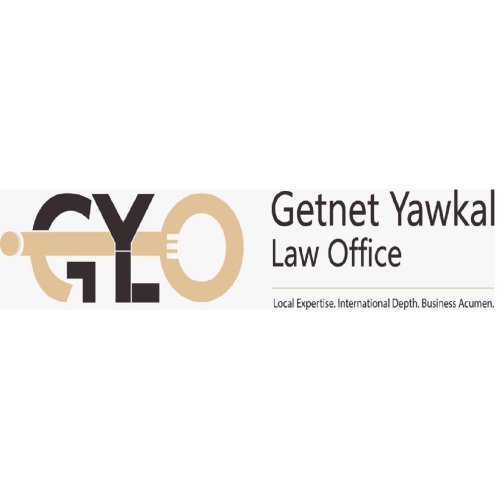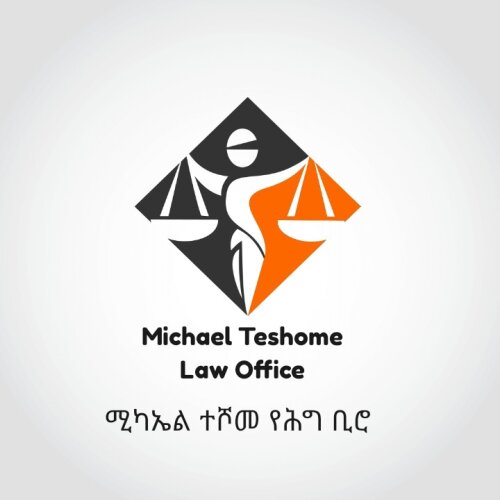Best Employment & Labor Lawyers in Ethiopia
Share your needs with us, get contacted by law firms.
Free. Takes 2 min.
Or refine your search by selecting a city:
List of the best lawyers in Ethiopia
About Employment & Labor Law in Ethiopia
Employment and labor law in Ethiopia is governed by the Labor Proclamation 1156/2019, which outlines the rights and responsibilities of employers and employees. The laws aim to promote fair labor practices, protect workers’ rights, and enhance worker productivity, while also ensuring that businesses are able to operate efficiently. Ethiopia's employment law covers various issues including wage regulations, working hours, occupational safety, termination of employment, and dispute resolution mechanisms.
Why You May Need a Lawyer
Engaging a lawyer can be crucial in navigating the complexities of employment and labor law in Ethiopia. Common situations where legal assistance might be necessary include:
- Understanding and negotiating employment contracts.
- Addressing disputes related to wrongful dismissal or contract termination.
- Handling issues related to workplace discrimination or harassment.
- Ensuring compliance with occupational health and safety regulations.
- Dealing with unpaid wages or benefits disputes.
- Representation in labor disputes or collective bargaining agreements.
Local Laws Overview
Key aspects of Ethiopian employment and labor laws include:
- Employment Contracts: Must be written and include essential terms such as wages, job description, and working hours.
- Working Hours: A standard workweek should not exceed 48 hours, typically encompassing six days with the possibility of adjustments via collective agreements.
- Minimum Wage: While not fixed for all employers, sector-specific minimum wages may be set through collective agreements.
- Leave Entitlements: Employees are entitled to annual leave, public holidays, and other types of leave such as maternity, sick, and compassionate leave.
- Termination and Severance: Notice periods and severance pay depend on the type of contract and causes for termination.
- Dispute Resolution: Disputes may be resolved through mediation, arbitration, or labor courts.
Frequently Asked Questions
What is an employment contract, and what should it contain?
An employment contract is a legal agreement between an employer and an employee, outlining the terms of employment. It should include job title, responsibilities, remuneration, working hours, and any other conditions of employment.
How is workplace harassment addressed under Ethiopian law?
Workplace harassment is prohibited in Ethiopia. Employees can report harassment to the labor ministry or seek redress through the court system.
What are the minimum rest periods after working hours?
Employees are entitled to a minimum of 11 consecutive hours of rest in a 24-hour period and one full day of rest per week.
How are occupational safety and health regulations enforced?
Employers are required to maintain a safe working environment, adhering to specific health and safety standards set by the relevant authorities, with inspectors conducting checks to ensure compliance.
Is maternity leave paid in Ethiopia?
Yes, female employees are entitled to a minimum of 90 days of paid maternity leave, with at least 30 of those days taken after birth.
What happens if my employer does not pay my wages on time?
Delayed wage payments can be reported to the labor ministry or resolved through legal action, often involving mediation or labor courts.
Are there protections for employees laid off due to redundancy?
Yes, employees laid off for redundancy may be entitled to severance pay and other benefits as stipulated in the labor laws.
Can an employee resign without notice?
Generally, employees must adhere to the notice period specified in their contract unless there are justifiable reasons for immediate resignation, such as employer breach.
How are disputes between employers and employees typically resolved?
Disputes can be resolved through informal negotiations, formal mediation, or legal proceedings in labor courts.
Are there any restrictions on child labor?
Yes, Ethiopia has strict regulations against child labor, disallowing the employment of anyone under the age of 14, with additional protections for those between 14 and 18.
Additional Resources
Here are some resources that can offer further assistance and information:
- Ethiopian Ministry of Labor and Social Affairs: Offers guidance and enforcement of labor laws.
- The Federal Supreme Court Labor Division: Handles labor-related legal cases.
- Trade Unions: Support in collective bargaining and dispute resolution.
- NGOs and Legal Aid Clinics: Provide free legal aid and advice.
Next Steps
If you need legal assistance in employment and labor issues, consider the following steps:
- Document Everything: Keep records of agreements, correspondences, and any incidents related to your employment issues.
- Consult a Lawyer: Seek advice from a lawyer specializing in Ethiopian employment law to understand your rights and options.
- Reach Out to Relevant Authorities: Contact government bodies or trade unions for additional support or to report violations.
- Mediation and Arbitration: Explore out-of-court solutions like mediation to resolve disputes amicably.
- Pursue Legal Action: If necessary, file a case in the labor courts for a legal resolution.
Lawzana helps you find the best lawyers and law firms in Ethiopia through a curated and pre-screened list of qualified legal professionals. Our platform offers rankings and detailed profiles of attorneys and law firms, allowing you to compare based on practice areas, including Employment & Labor, experience, and client feedback.
Each profile includes a description of the firm's areas of practice, client reviews, team members and partners, year of establishment, spoken languages, office locations, contact information, social media presence, and any published articles or resources. Most firms on our platform speak English and are experienced in both local and international legal matters.
Get a quote from top-rated law firms in Ethiopia — quickly, securely, and without unnecessary hassle.
Disclaimer:
The information provided on this page is for general informational purposes only and does not constitute legal advice. While we strive to ensure the accuracy and relevance of the content, legal information may change over time, and interpretations of the law can vary. You should always consult with a qualified legal professional for advice specific to your situation.
We disclaim all liability for actions taken or not taken based on the content of this page. If you believe any information is incorrect or outdated, please contact us, and we will review and update it where appropriate.
Browse employment & labor law firms by service in Ethiopia
Ethiopia Attorneys in related practice areas.
Browse employment & labor law firms by city in Ethiopia
Refine your search by selecting a city.

















